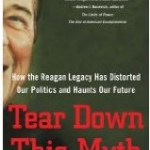Books
Thomas Kuhn -- the one philosopher of science that even ignorami like me have heard of -- said that during periods of 'normal science', researchers only take on problems that they know they can solve. 'Paradigm' is an overused word, but it's a measure of the paradigm-shifting nature of the Origin that in much of it, such as in chapter 9 'On the imperfection of the geological record', Darwin flies blind.
This creates almost as much trouble for the reader as it does for Darwin, as we saw in the previous chapter. The less you can explain, the more you need to describe; where Darwin has cracked a…
Thomas Kuhn -- the one philosopher of science that even ignorami like me have heard of -- said that during periods of 'normal science', researchers only take on problems that they know they can solve. 'Paradigm' is an overused word, but it's a measure of the paradigm-shifting nature of the Origin that in much of it, such as in chapter 9 'On the imperfection of the geological record', Darwin flies blind.
This creates almost as much trouble for the reader as it does for Darwin, as we saw in the previous chapter. The less you can explain, the more you need to describe; where Darwin has cracked a…
I know, the Bush administration is history. So, I've argued, is the "Republican war on science."
But if you never yet got a copy of the book of the same name, now's the time--Amazon is selling the paperback, new, for $ 4.99.
I don't usually hawk my wares like this, but that's damn cheap.
My latest Science Progress column is up: It makes the case that Stephen Colbert is the heir to Johnny Carson in terms of talk show promotion of science.
It also includes various lame and stupid talking points that I made up and didn't use on the show, such as the following hypothetical Q&A responses:
Didn't scientists start the "war" in the first place? Didn't they commit acts of aggression?
Yes, if you mean by learning things.
Why should I care about science?
Because America is really good at it--much better than France.
Is there really a "war" on science? Where are the bodies?
Well,…
So...I have a new home.
Just two days ago now, I arrived in Princeton, New Jersey and occupied a new apartment here, along with the fiance and the puppy. Los Angeles was a blast, and it's somewhere I think everyone ought to try to live--but I wanted to get back to the hoary old east coast.
I also had reason to do so: I'm now a visiting associate at the Center for Collaborative History here. The professor I'll be collaborating with is D. Graham Burnett, a science historian who taught me Darwin at Yale back in 1997. We're working on a history of science project, not surprisingly...and that's…
George Bernard Shaw, according to a comment left on a previous post, thought that many people gave up on reading the Origin because, convinced of Darwin's argument, they wearied of him making his points over and over again.
But I disagree. It's not seeing Darwin restate his case that's tiring. It's seeing him return, like a dog to its vomit, to questions that he admitted in chapters one and two couldn't be answered.
When I read these earlier chapters, I was struck by how skilfully Darwin skirted uncertainties, and even how he used them in his arguments. I thought of giving this a fancy name…
George Bernard Shaw, according to a comment left on a previous post, thought that many people gave up on reading the Origin because, convinced of Darwin's argument, they wearied of him making his points over and over again.
But I disagree. It's not seeing Darwin restate his case that's tiring. It's seeing him return, like a dog to its vomit, to questions that he admitted in chapters one and two couldn't be answered.
When I read these earlier chapters, I was struck by how skilfully Darwin skirted uncertainties, and even how he used them in his arguments. I thought of giving this a fancy name…
Will Bunch of Attytood recently published an interesting and important book - Tear Down This Myth: How the Reagan Legacy Has Distorted Our Politics and Haunts Our Future.
On his blog, Will provides an excerpt and commentary:
Twenty years gone - but Reagan still matters. About this time one year ago, unceasing Reagan idolatry hijacked the race for the White House. Sometimes it was voiced in the name of policies on immigration or toward Iran that were the exact opposite of what really happened a generation ago. The power of this political fantasy - expressed mainly, of course, on the GOP side…
John Updike, 1955
Photo: Hulton Archive/Getty Images, via NYMag
The 'net is fairly bursting with Updike appreciations, but I especially like this one from Sam Anderson at New York, which notes that amid what can seem an intimidating body of work, Updike's essays offer an easy and richly satisfying introduction or revisit.
I always go back, first, to his essays, which strike me as the purest expression of his personality: easy, sociable, curious, smart, funny, generous, and almost pathologically cheerful. He was, for my money, one of the greatest belletrists of all time -- a master of the…
'Tis a smaller world now. John Updike is dead of lung cancer.
The end of Rabbit at Rest:
"Well, Nelson," he says, "all I can tell you is, it isn't so bad." Rabbit thinks he should maybe say more, the kids looks wildly expectant, but enough. Maybe. Enough.
Fifty books, countless essays, some of the best book reviews I've ever read. Maybe enough. Never too much.
The Times has a nice obit and a videotaped conversation. I have a hole in my heart.
photo credit: Robt Spencer for the Times.
var gaJsHost = (("https:" == document.location.protocol) ? "https://ssl." : "http://www.");
document.…
Science is fun. Now, I know that someone telling you a thing is fun is usually a guarantee that it isn't. And I know that people who tell you science is fun usually do so in strained and pleading tones, and expect you to believe them because they have spiky hair and can play the harmonica. But it's true.
To see what I mean, read chapter 6 of the Origin, 'Instinct'. Despite, or because of, having its share of 'are you sure about that?' moments, it's a delight, because it shows Darwin doing the most fun thing in science: mucking about with reality, sometimes called experimentation.
In this…
The book opens so thrillingly -- a plane crash, a last-second Super Bowl victory, and a first chapter that comfortably reconciles Plato and Ovid with Tom Brady and John Madden -- that it spawns a worry: Can the book possibly sustain this pace?
"How We Decide" delivers. Jonah Lehrer, -- author of "Proust Was a Neuroscientist," blogger at Frontal Cortex, and (full disclosure) an online acquaintance and sometime colleague of mine for a couple years now (I asked him to take over editorship of Scientific American's Mind Matters last year, and we share blogging duties at VeryShortList:Science)…
tags: Birdbooker Report, bird books, animal books, natural history books, ecology books
"One cannot have too many good bird books"
--Ralph Hoffmann, Birds of the Pacific States (1927).
The Birdbooker Report is a special weekly report of a wide variety of science, nature and behavior books that currently are, or soon will be available for purchase. This report is written by one of my Seattle birding pals and book collector, Ian "Birdbooker" Paulsen, and is edited by me and published here for your information and enjoyment. Below the fold is this week's issue of The Birdbooker Report which…
In two days, my favorite co-blogger will be appearing on Comedy Central's The Colbert Report to discuss the 'war on science' and how the Obama administration can fix it. With the nation abuzz over the stimulus package, melting ice shelves, and new cabinet appointments, it's a timely subject, no?
Chris has already shared some ideas at Slate.com and during his recent Bloggingheads diavlog with Carl Zimmer. It's also a topic and we explore comprehensively in Unscientific America: How Scientific Illiteracy Threatens Our Future.
So with a lot more to come, tune in Monday night!
Brian Metscher has reviewed the ID “supplementary textbook” Explore Evolution for the journal Evolution & Development. Metscher describes the work as
159 glossy pages of color-illustrated creationist nostalgia All the old favorites are here — fossils saying no, all the Icons, flightless Ubx flies, irreducible flagella, even that irritating homology-is-circular thing. There are no new arguments, no improved understanding of evolution, just a remastered scrapbook of the old ideas patched together in a high-gloss package pre-adapted to survive the post-Dover legal environment.
Metscher…
From The Log of the Ark.
Young earth creationists love to talk about how there really was a global Deluge and that there were dinosaurs aboard the Ark, but rarely do you see any attempt on their part to visualize what life was like on Noah's ship. What did Noah and his family do to while away the hours? How did they manage to feed all the animals (and make sure the animals didn't feed on each other)? What happened when an animal got sick? These are absurd questions because there is no evidence for a global Flood or that a man named Noah commanded a ship full of two of every species, but…
As we've announced, our new book due out this Spring will be entitled Unscientific America: How Scientific Illiteracy Threatens Our Future.
We're in the final stages of editing the manuscript and will be able to say more about its content very soon, but for now, we're excited that we can finally show you the cover...
Up until now, our route into the theory of evolution by natural selection has been all downhill. One thing has led effortlessly to another, with Darwin giving the occasional nudge to steer things in the right direction. Not any more. If it's human interest you're after -- doubt, sweat, anxiety -- then chapter 6 of the Origin, 'Difficulties on Theory', is the one you've been waiting for.
I obviously wasn't going to admit it, but after chapters 4 and 5, I was beginning to fear that we'd peaked with the struggle of chapter 3. But this chapter is full of gems, both in the science, and in the…
To a man with a hammer, said Mark Twain, everything looks like a nail. The better your hammer, I would add, the more nail-like everything looks.
In natural selection, Darwin had crafted one of the best hammers of all time. And in chapter 5 of the origin, 'Laws of Variation', you can hear him umming and aahing about various alternative mechanisms of evolutionary change before deciding that, actually, you know what this needs...hold 'er steady...Thwack!
How about, for example, the "effect of external conditions" -- "food climate &c.". Well, "Gould believes that birds of the same species are…

